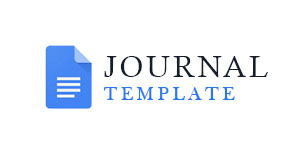The Effect of Export, Islamic Mutual Fund, and Labor Force on Economic Growth in Indonesia
Abstract
Keywords
Full Text:
PDFReferences
Eliza, Y. (2015). Pengaruh Investasi, Angkatan Kerja dan Pengeluaran Pemerintah Terhadap Pertumbuhan Ekonomi di Provinsi Sumatera Barat. Jurnal Pekbis, 7(3), 200–210.
Ginting, A. M. (2017). ANALISIS PENGARUH EKSPOR TERHADAP PERTUMBUHAN EKONOMI INDONESIA. Buletin Ilmiah Litbang Perdagangan, 11, 1–20.
Gujarti, D. (2003). Ekonometrika Dasar (p. Hal.46). Erlangga.
Machmud, A. (2016). Perekonomian Indonesia Pasca Reformasi. Erlngga.
Munthe, M. N. (2019). Pengaruh Tingkat Investasi dan Angkatan Kerja terhadap Pertumbuhan Ekonomi di Indonesia. Jurnal Manajemen Dan Bisnis. http://103.76.21.184/index.php/JIMB_ekonomi/article/view/428
Nurafiati, N. (2019). Perkembangan Pasar Modal Syariah Dan Kontribusinya Terhadap Pertumbuhan Ekonomi Di Indonesia. Inklusif (Jurnal Pengkajian Penelitian Ekonomi Dan Hukum Islam), 4(1), 65. https://doi.org/10.24235/inklusif.v4i1.4167
Pridayanti, A. (2013). Pengaruh Ekspor, Impor, dan Nilai Tukar Terhadap Pertumbuhan Ekonomi Di Indonesia Periode 2002-2012. Jurnal Ekonomi & Kebijakan Publik, 12(05), 1–5.
Rahayu, sri endang, Febriaty, H., Rozaini, N., & Mardalena. (2016). pengantar ekonomi makro.
Tambunan, K. (2016). Analisis Pengaruh Investasi , Operasi Moneter dan ZIS.
Tambunan, K. (2020). Diktat Ekonomi Pembangunan.
DOI: https://doi.org/10.24952/tijaroh.v8i1.4580
Refbacks
- There are currently no refbacks.
Copyright (c) 2022 At-tijaroh: Jurnal Ilmu Manajemen dan Bisnis Islam

This work is licensed under a Creative Commons Attribution-ShareAlike 4.0 International License.














